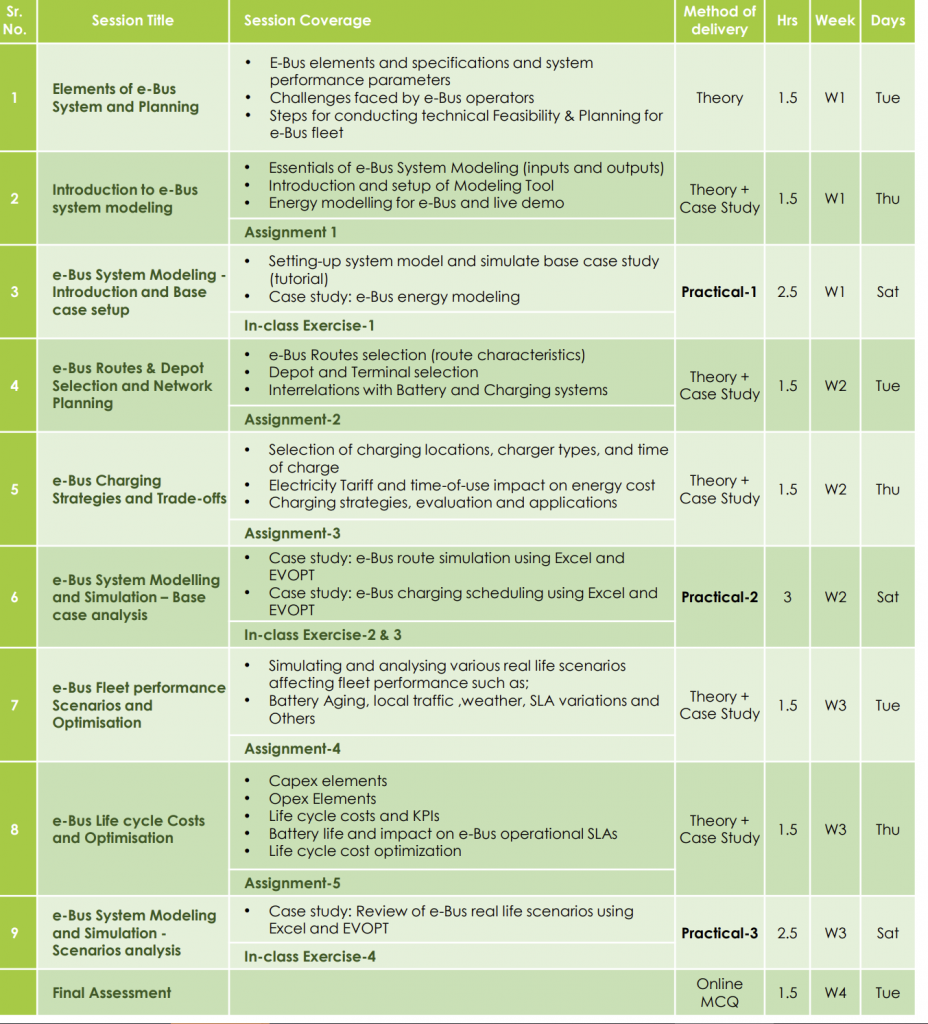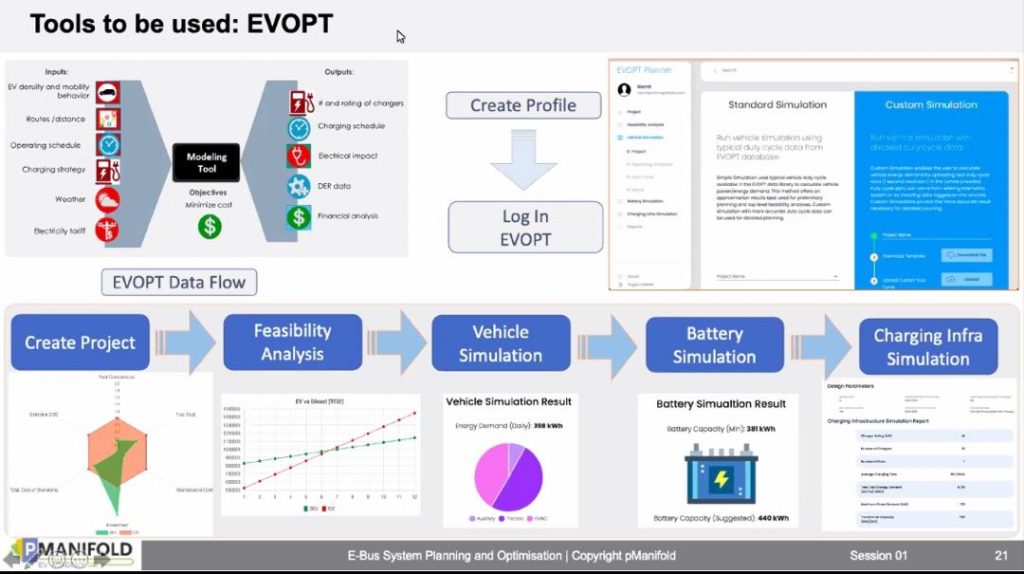As a trusted advisor, GGGI plays a neutral role in advocating for technology choices such as charging infrastructure, bus models, and more. GGGI Rwanda Sustainable Mobility Program supports the government of Rwanda to:
• Provide strategic advice on the development of Rwanda’s e-mobility transition, specifically in the adoption of electric public buses
• Support in the drafting of the Transport Policy, Transport Masterplan, and regulatory framework governing the adoption of e-mobility
• Strengthening of NMT infrastructure prioritization and engagement of vulnerable groups and
• Resource mobilization
This sustainable mobility program would help improve and support sustainable mobility in Rwanda resulting in greenhouse gas (GHG) mitigation, green jobs creation through increased EV penetration and supporting infrastructure. E-mobility represents an opportunity for the Government of Rwanda to address two areas of increasing concern:
1) rising levels of particulate matter (and GHG emissions) due to transport in fast-growing urban and peri-urban areas and
2) a surplus of electricity due to the country’s large-scale investments in hydropower. As a result, the commitment to phasing out the use of fossil fuels for transportation has been voiced from the highest levels of Government announcing the planned development of a national e-mobility policy and plans to prioritize the transition to e-mobility starting with motorcycles, then buses, and lastly, cars and privately-owned vehicles.
The Government of Rwanda has prioritized the transition to e-mobility for the purposes of reducing air pollution and greenhouse gas emissions and improving the wellbeing of its citizens, thus contributing to achieving the national and global goals. The promotion of mass rapid transportation is a component of Rwanda’s NDC targets for transportation. Transport contributes 13% of GHG emissions according to the national GHG inventory data. Population increases in urban centers are expected to increase the demand for services including public transport. As city centers become more populated, the need for high capacity, efficient modes of transport become more urgent in order to reduce GHG emission and air pollution sourced from vehicular emissions. Vehicular emissions are currently the leading cause of increasing air pollution in cities in Rwanda. Initiatives in the City of Kigali will lead the country in transitioning to green transport to reduce air pollution from vehicle exhaust as well as greenhouse gases (GHG) from the transport sector. By shifting more people to public transport, cities have the capacity to reduce road congestion, air pollution, and GHG emissions.
The electrification of public transport further increases the potential for reducing the negative impact of transport on the environment and public health outcomes.

13 (comprising of 2 females and 11 males) participants from Rwanda Utilities Regulatory Authority (RURA) , Ministry of ICT and Innovation (MINICT) , Ministry of Infrastructure (MININFRA) , Rwanda Transport Development Agency (RTDA) were sponsored by GGGI Rwanda to participate in the online training hosted and organized by PManifold EV Academy.
The e-Bus System Planning and Optimization, 4 week online training program was designed to enable participants develop holistic understanding of e-Bus eco-system, its elements and their inter linkages. The training program introduced the theory and practical sessions to help in selection of e-bus, battery, charging infrastructure, transit network and route planning considerations and understand overall effect on e-bus operations.
The training was designed to develop understanding of analyzing and relating with real-time challenges in e-Bus electrification and techniques for problem solving and decision making. The training had three main objectives for participants to:
• Understand the elements of e-Bus ecosystem and their interlinkages
• E-Bus, Battery and Charging Technology selection, overall system requirements planning, and economics
• Unique hands-on Modeling for Realtime problem solving and building future scenarios for desired e-Bus operations using Excel and EVOPT Tool
The Online Training and Certification Program was an interactive online training that included 6 Theory + Case study sessions ; 3 Practical sessions, total 8 hours Hands-on modeling and simulation assignments using Excel and EVOPT ; 5 Assignments ;4 In-class Exercises and 1 Final assessment. The three trainers from PManifold were Mr. Sankar Narayanan Founder and CEO, Microgrid Labs (MGL) ; Mr. Rahul Bagdia Managing Director and Partner, pManifold and Mr. Vikrant Vaidya Partner and Lead EV Systems Engineering, pManifold.

Peter Mugabo (RTDA) applauded the trainers and said he now feels more confident after completing the course and can give advise to his supervisors on electric buses as he has understood the need for such tools that support the viability and functionality of e-buses. He added that this course will help government officials integrate e-buses into the current fleet in Rwanda, to help synergies all existing initiatives that will support in decision making to develop a clear action plan.
 Francois Zirikana (MININFRA) said the training commenced at the right time as they had started engaging with the private operators and this will help facilitate the dialogue and help address their concerns on charging infrastructure. He further mentioned how this course will help him apply the knowledge to developing an operational roadmap, from procuring buses, operations and modelling since as the government representatives we are the link between suppliers and operators.
Francois Zirikana (MININFRA) said the training commenced at the right time as they had started engaging with the private operators and this will help facilitate the dialogue and help address their concerns on charging infrastructure. He further mentioned how this course will help him apply the knowledge to developing an operational roadmap, from procuring buses, operations and modelling since as the government representatives we are the link between suppliers and operators.
Samuel Kamanzi , (RURA) said he was grateful for this opportunity and was excited to take part in the course , to know and understand how EV is working and the planning that is required to introduce new fleet in Rwanda, as one needs to know such practical solutions. He believes the course will help them in planning for the next steps to have electric busses considered as more affordable and convenient sustainable transport in Rwanda.

The Government of Rwanda has committed to transitioning to electric vehicles. While the private sector has taken the lead on the introduction, integration, and adoption of electric motorcycles and cars in Rwanda, fewer opportunities exist for similar initiatives to import and transition to electric buses. As a result, public transport systems and bus fleets have little incentive to commit the high capital expenditure and cost of charging infrastructure to enable the shift to low-carbon and zero emission bus systems. Nonetheless, electric buses are an important component that will enable Rwanda to transition to a low-carbon, multi-modal transport system.
Michelle DeFreese , GGGI Senior Green Growth Officer stated that GGGI is happy to support the government of Rwanda and moving forward we plan to have session where this acquired knowledge can be transferred as part of training of trainers specifically for the bus operators. GGGI will also continue to support the Ministry of Infrastructure on National E-mobility Strategy ; completing the electric car business case ; participate in the EV Summit (Sept 2021) ; organize awareness campaigns for African Mobility Month (Oct-Nov 2021).